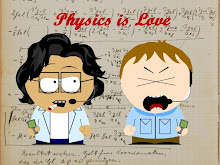This confidence that truths would be discovered in all fields was shattered by the recognition that there is no truth in mathematics. The hope and perhaps event the belief that truths can be obtained in politics, ethics, religion, economics, and many other fields may still persist in human mids, but the best support for the hope has been lost. Mathematics offered to the world proof that man can acquire truths and then destroyed the proof. It was non-Euclidean geometry and puaternions, both triumphs of reason, that paved the way for this intellectual disaster.
One curious feature of the arguments used by 18th-century thinkers was their recourse to the term metaphysics. It was used to imply that there was a body of truths lying outside the domain of mathematics proper which could, if necessary. be called upon to justify their work, though just what these truths were was not clear. The appeal to metaphysics was meant to give credence to arguments that reason failed to support. Thus, Leibniz asserted that metaphysics is of more use in mathematics than we realize. His argument for taking 1/2 to be the sum of the series 1 - 1 + 1 - ... and his principle of continuity, neither of which had more to recommend it than Leibniz's own assertion, were "justified" as metaphysical as though this "justification" placed them beyond dispute. Euler, too, appealed to metaphysics and argued that we must acquiesce to it in analysis. When they could provide no better argument for an assertion, the 17th- and 18th-century mathematicians were wont to say the reason was metaphysical.
--ibid, pp 152
The sequence of events is noteworth. Instead of starting with the whole numbers and fractions, then taking up the irrational numbers, the complex numbers, algebra, and the calculus, the mathematicians attacked these subjects in reverse order. They acted as though they were reluctant to tackle what could well be left alone as clearly understood and only when the need to logicize a subject was imperative did they undertake to do so. At any rate, by about 1890, only six thousand years after the Egyptians and Babylonians began to work with whole numbers, fractions, and irrational numbers, the mathematicians could finally prove that 2 + 2 = 4. It would appear that even the great mathematicians must be forced to consider rigor.


No comments:
Post a Comment